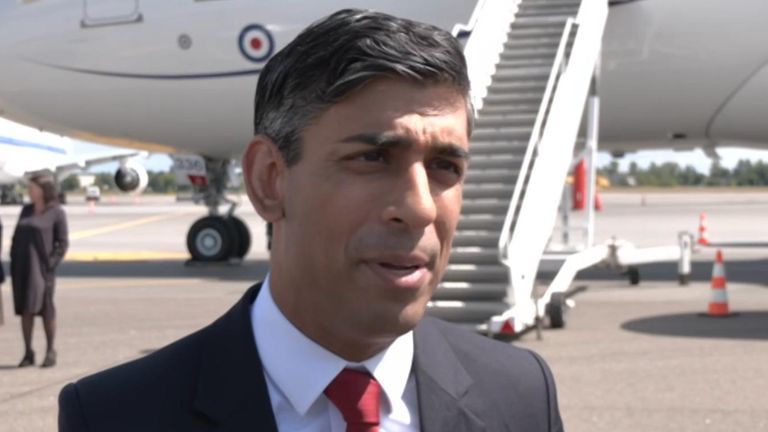There were already serious concerns about the way the BBC handled the initial complaint made against one of its presenters - now it could be the corporation's own journalists that cause the dam to burst on this story.
Speaking on a Zoom conference to mark the BBC's annual report, director-general Tim Davie said when the complainant contacted BBC audience services, the details were considered "very serious" and it was referred to its corporate investigations team.
Yet the presenter was not contacted and asked about the allegations for seven weeks.
There were only two attempts to contact the complainant afterwards - once by email and once by phone on 6 June, which the BBC said "didn't connect".
A month passed and only after the story appeared in The Sun newspaper was the presenter spoken to - and it's clear even then the BBC did not go on an immediate evidence-gathering process, such as asking for bank details.
There remain some gaping holes in what we know about the initial complaint.
We know BBC investigators assessed in May there was no criminality, but we don't know exactly why. Nor whether the corporation stands by its assessment now they've reviewed the original complaint. It seems they do because their earlier statement said "new allegations were put to us on Thursday of a different nature".
But with this statement being described as "a lie" by the family, one might have expected more clarity from the BBC about what was missing from the initial complaint that then appeared in The Sun.
Read more:
Why hasn't the BBC presenter been named publicly?
Scandal is sleazy - but at the heart of this a family is suffering
Please use Chrome browser for a more accessible video player
 0:29
0:29
PM: BBC allegations are 'shocking'
In some ways, the BBC's corporate investigations team have been outpaced by BBC journalists, who received separate revelations from a different complainant about the same unnamed presenter.
This time, the allegation was that after making contact with the presenter on a dating app, the presenter became extremely threatening after fearing the young person would go public with their identity.
When journalists took up the case, they claim to have been quickly able to verify it was the presenter's number used to contact the young person, and they immediately tried to contact their colleague for a response.
Spreaker
This content is provided by Spreaker, which may be using cookies and other technologies.
To show you this content, we need your permission to use cookies.
You can use the buttons below to amend your preferences to enable Spreaker cookies or to allow those cookies just once.
You can change your settings at any time via the Privacy Options.
Unfortunately we have been unable to verify if you have consented to Spreaker cookies.
To view this content you can use the button below to allow Spreaker cookies for this session only.
Click to subscribe to the Sky News Daily wherever you get your podcasts
It becomes ever more difficult for the presenter's identity to remain unconfirmed.
And while the BBC wants to handle this at its own pace, citing legitimate duty of care concerns, perhaps events simply won't allow it.